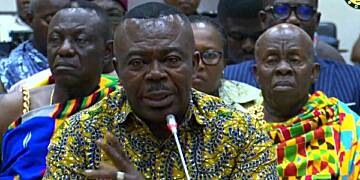Minister for Chieftaincy and Religious Affairs, Stephen Asamoah Boateng, in a press conference held in Accra, announced the Ghanaian government’s initiative to formulate a national policy on religion.
The policy aims to address challenges stemming from the coexistence of various faiths and beliefs in society, providing a framework to safeguard the rights of religious groups and prevent conflicts arising from religious differences.
Since assuming office in April, Minister Boateng has grappled with issues related to religious activities and beliefs. Discussions with religious leaders and civil societies emphasized the need for a policy to manage challenges, ranging from weak enforcement of laws to issues like noise pollution and exploitation of the vulnerable.
“I have also had opportunities to interact with leaders of religious bodies and civil societies in finding a harmonious coexistence amongst the citizenry. Part of the discussions have centred on how the religious bodies would be encouraged to put in structures to self-manage their front,” he added.
The minister commended religious leaders for their positive impact on society, expressing the government’s commitment to proactively address concerns related to religion in Ghana.
According to the 2021 Population and Housing Census, 21.9 million Ghanaians identify as Christians, 6.1 million as Muslims, with other categories including Traditionalists, followers of other religions, and non-religious individuals.
To ensure inclusivity, 16 regional stakeholder consultations are scheduled in the coming weeks as part of the policy development process. These consultations, made possible with the support of the United Nations Population Fund Ghana (UNFPA) Country Office, aim to foster religious harmony, diversity, and tolerance.
“It has been a real pleasure establishing a working partnership with the Country Representative. A partnership that will see bigger joint programmes into next year,” he added
Dr. Wilfred Ochan, UNFPA Country Representative also highlighted the significant role religious leaders play in guiding communities and promoting positive values.
Stressing the importance of a national framework, he urged all stakeholders to actively participate in the consultations, emphasizing the potential for joint programs in the future.




















